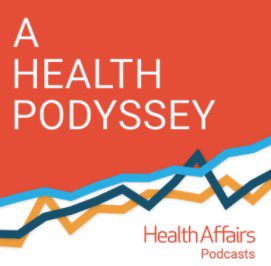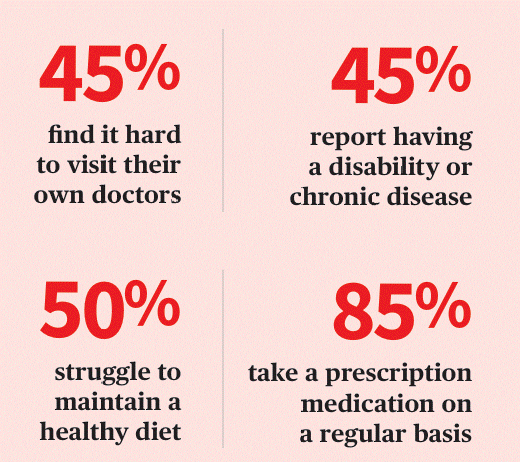
Archive for August 2024
The role of maternal and child healthcare providers in identifying and supporting perinatal mental health disorders
Brief behavioral intervention for chronic pain in integrated primary care: What are we waiting for?
Fall Semester—A Time for Parents To Discuss the Risks of College Drinking
Christina Andrews on States’ Role in Substance Use Disorder Treatment via Medicaid

Feedback seeking and student reflective feedback literacy: a sociocultural discourse analysis
The double-edged effect of social mobility belief on socioeconomically disadvantaged adolescents’ health: The mediating role of intentional self-regulation.
LIHWAP and Pennsylvania: Providing Water for All
Comparing the symptom presentation similarities and differences of complex posttraumatic stress disorder and borderline personality disorder: A systematic review.
Cognitive-behavioral statuses in depression and internet gaming disorder of adolescents: A transdiagnostic approach
Sex-specific associations between childhood trauma and adult systemic inflammation in daily life.
Reducing Disability Program’s Earnings Limit is Tricky
Unravelling the web: Experiences of adolescents returning to school following a concussion
Pattern of access, early predictors of use, and treatment effectiveness of a psychological counselling service for medical students: an Italian longitudinal study
Standardising job descriptions in the humanitarian supply chain: A text mining approach for recruitment process
Evaluating the efficacy of a school-based Finnish Gutsy Go programme in enhancing adolescents’ positive mental health, experience of social inclusion, and social competence
Enhancing a sense of academic and social belongingness of Chinese direct-entry students in the post-Covid era: a UK context
Differences in Subjective Transition Outcomes Between Transgender and Gender-Diverse Individuals Who Completed Mandatory Psychiatric Assessment and Those Who Received Gender-Affirmative Medical Treatment in Croatia: A Cross-Sectional Online Survey
Inter-agency Policy Briefs on Accelerating Progress on the 2030 Agenda from Local to Global Levels: The Critical Importance of SDG Localization
Effects of family functioning on problem behaviour among Chinese preschool children: the mediation effect of mother–child relationships
Does Digital Intergroup Contact Reduce Prejudice? A Meta-Analysis
Influences of internet access on civic knowledge measurement in Taiwan
Aotearoa New Zealand Rare Disorders Strategy
The puzzle of loneliness: A sociostructural and transnational analysis of International Chinese Students’ networks in Germany
High STI burden among a cohort of adolescents aged 12–19 years in a youth-friendly clinic in South Africa
How are mental state references represented in English and Japanese picture books? An analysis of the frequency of emotional and cognitive words and their relation to the self or others
Eldercare or childcare: intergenerational distribution in Chinese families facing care deficits
Borderline personality disorder and social connectedness: A systematic review.
Effects of mindfulness-based stress reduction on quality of life of breast cancer patient: A systematic review and meta-analysis
Behaviourally assessed negative urgency is uniquely associated with binge‐eating frequency
The Effect of Botulinum Toxin (Masport) Injection Following Internal Urethrotomy of Bulbar Urethral Stricture: A Pilot Study
The Impact of the New Families Home Visiting Program on Depressive Symptoms Among Norwegian Fathers Postpartum: A Nonrandomized Controlled Study
Loneliness and Alcohol use among College Students During the COVID-19 Pandemic in Rural Appalachia
Prefrontal Metabolite Alterations in Individuals with Posttraumatic Stress Disorder: A 7T Magnetic Resonance Spectroscopy Study
Alcohol purchases through online stores and mobile applications in the late phase of the COVID-19 pandemic in Poland
Consumption trends and policies under scrutinisation
Reflective and reflexive research participants: Growing the scope for engaging the expertise of frontline workers for policy change
Mauri Hono: A Mauri sensory methodology
The mediation model of social status on the link between parental attachment, aggressive behavior, and psychological well‐being: Evidence from two studies in Vietnamese adolescents and young adults
The burden of cirrhosis mortality by county, race, and ethnicity in the USA, 2000–19: a systematic analysis of health disparities
To tell or not to tell about bullying—New insights from the study on the perceptions of criminal sanctioning, anticipation of school punishment, agency, and trust toward school staff
Women’s welfare attitudes in South Korea
The scientist/practitioner in behavior analysis: A case study
Dignity 2024: The Experience of LGBTQ+ Older Adults

LGBTQ+ adults 45-plus face unique challenges when it comes to healthcare and daily life.